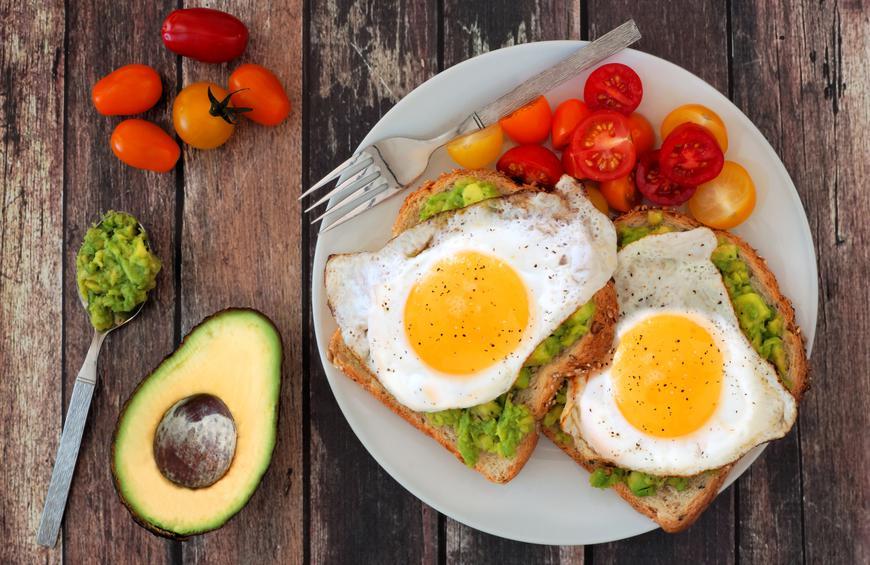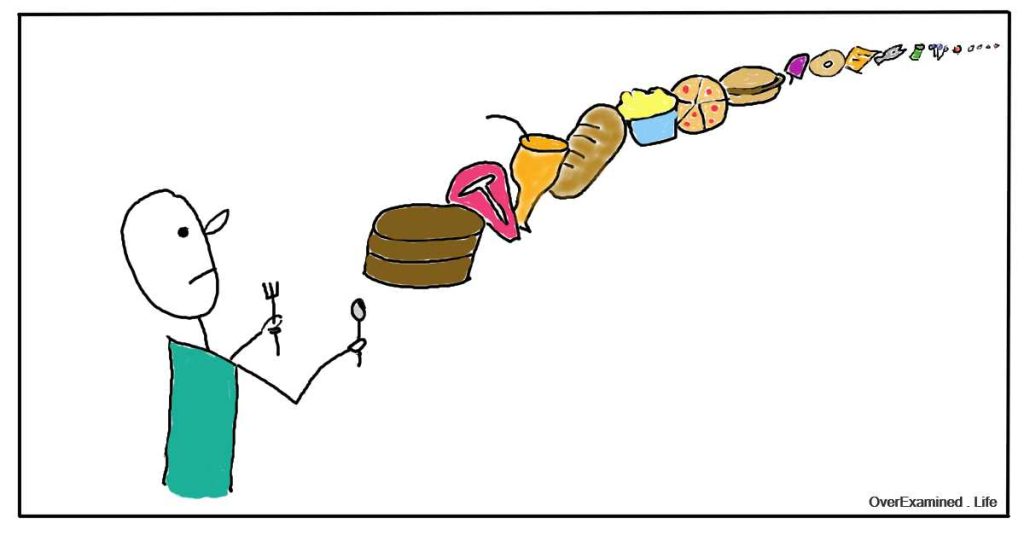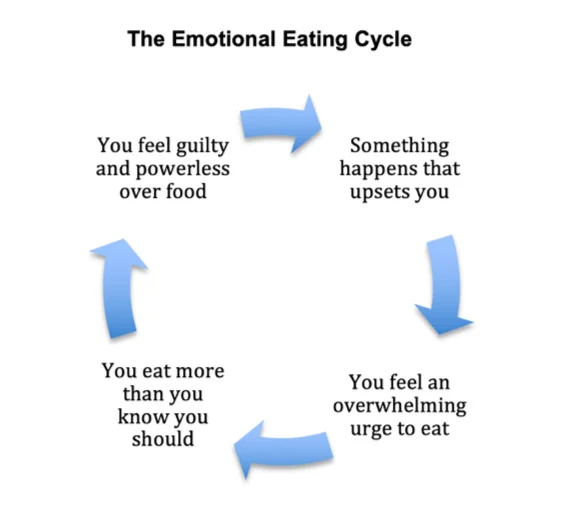
Nighttime snacking, emotional eating, junk-food binges — sound familiar? Break these common bad eating habits for a healthier lifestyle. But what does healthy eating actually mean and how do you start putting this into practice and break bad habits? For some, this may be a way to help them lose weight, for others the goal may be to lower their blood pressure, and for others, it may just be to have a healthier way of living.
What causes poor nutrition? It’s the bad eating habits that people develop over a period of time without even realising it. Things like leaving in the morning without breakfast or binge eating chips in front of the tv while watching your favourite shows. You won’t even realise and you’ll ruin your diet.
Here are a few solutions for your bad eating habits and lifestyle:
- Mindless eating:

Mindless eating can occur anytime when a person is not aware of how much he/she is consuming food. This can be due to stress, sadness, anxiety, or even skipping meals. This is when a person eats without being hungry or without the intention of eating.
Cornell University food psychologist Brian Wansink, PhD, discovered that the larger the plate you eat from, the more you unknowingly consume. In a recent study, Wansink found that people going to the movies who were given a larger container containing stale popcorn consumed 45% more popcorn than those who were snacking on fresh popcorn
Solution: switch your large plates and bowls with smaller ones and not to eat directly from a packaging or container.
Change your habit to mindful eating
2. Skipping breakfast:

Breakfast is one of the most important meals. A lot of people feel it is ok to skip breakfast when they are running late for work or to lose weight but this actually works the other way round. Skipping meals usually slows down the metabolism. Breakfast is important to give you the energy to start your day and acts as the fuel for your body. people who typically eat breakfast also get more fibre, calcium, vitamins A and C, riboflavin, zinc and iron.
Solution: if you can’t have a proper meal, try having ready healthy breakfast foods that you can have on the go. Like fruits, yoghurt, smoothies and oatmeal etc.
Check out a few easy and quick healthy breakfast options
3. Late night snacking:

It is never a good idea to have snacks late at night after your dinner. Late-night snacking is linked to a lot of health concerns such as acid reflux, and weight gain. all these calories consumed at bedtime are stored as unhealthy fats. A new study backs this up, that it doesn’t matter what you eat but also when you eat it. Researchers at Northwestern University found that mice were given high-fat foods during the day (when these nocturnal animals should have been sleeping) and gained significantly more weight than mice given the same diet at night.
Solution:
- Try having a larger and more filling portion for dinner.
- Distract yourself and wait for a while, eat only if you’re still hungry.
- Switch to healthy snacks at night.
- Brush your teeth after dinner so that you avoid eating anything unless necessary.
4. Endless snacking:

Everybody loves snacking and snacking around the clock is one of the biggest problems people face. People usually snack on high-calorie food that is full of empty carbs. This issue has not only been increasing for adults but kids as well. Kids usually snack more on junk food like chips, soda and candies which affect them later in life.
Solution: keep only healthy snacks near you such as hummus and carrots and cucumber or a quick salad. Even popcorn or dry fruits are healthy for snacking. Don’t keep unhealthy food like chips, fries or other processed food in your pantry that makes it tough for you to resist it.
5. Emotional eating:

Many of us eat not for hunger but for comfort, stress or to reward ourselves. People usually reach out to unhealthy foods for emotional eating. A bad day at work and you get home and reach out to the fridge for a pint of ice cream or pizza to feel better? ” Crandall says. A number of studies confirm that emotions, both positive and negative, can cause people to eat more than they should, an easy weight-loss stumbling block.

Solution: it may feel good for a moment but emotional eating never solves the emotional problem, in fact, it makes you feel guilty for overeating and having unhealthy food.
Instead, find a new stress buster. Look for alternative options that can make you feel better like taking a walk, going for a drive, talking to a close friend or family other activities that help you relax.
6. Eating too fast:

wolfing down food not only takes the joy of enjoying your meal but also has several health-related risks. Your brain doesn’t get the signal of being full for 15-20mins since the time you start eating so if you eat your food in less than 10 mins there are chances you consume more food than you need. Eating fast can lead to problems such as obesity, diabetes, metabolic syndrome, and gastritis.
Solution: You should physically put the fork or spoon down in between having the meal that stops you from eating continuously and fast. Have a nice conversation with somebody while eating or drink water through your meal to slow down and feel full too.
Chew your food slowly almost 32times.
7. Eating Junk food

Junk food is described as drinks and food that are low on nutrition like vitamins fibres and minerals. They have saturated fats and added artificial sugar and salt. Eating junk food regularly causes problems such as obesity, non-alcoholic fatty liver disease, type 2 diabetes, cardiovascular disease and cancer.
Solution: The solution is not eliminating junk food completely, that will only increase your cravings. Eating in moderation once in a while as special treats and counting the calorie intake can help. check effects of junk food here
8. Not sleeping enough!

Not getting enough sleep can lead to weight gain and ruin your diet. Yes! According to a few researchers in Tokyo, they found that men and women who sleep for five or fewer hours at night are more likely to gain weight compared to people who sleep for 7 or more hours.
Solution: Set a routine timetable for yourself. Try to go to bed and wake up at the same time for a week. Keep all devices away an hour before going to bed and for more motivation switch the lights off making it more comfortable. Good sleep will always help you feel fresh the next day and also help in the weight loss journey.
9. Overeating in front of the tv:

You tend to overeat when you are watching some of your favourite series or when kids are playing video games. It’s not only the mindless eating in front of the screen but research tells that kids eat more in front of a screen or while playing videos games than compared to the rest of the day. This causes weight gain and obesity in kids and adults as well.
The attention is on the screen rather than what you’re eating.
Solution: Take a break from the screen while having your snack. Don’t eat while focusing on the screen to avoid overeating.
- Try choosing a snack that is healthy and not very sugary or salty.
- Set a limit on the number of snacks you have while binge-watching or playing video games
- Find something else to do while you are in front of a screen if you really want to keep yourself from munching on unhealthy food.
Motivation:
The most important step is to always stay motivated towards your goal. It is very challenging to stick to a habit but remember even if you lose focus you can always get back to routine.
When it comes to our health, the food we put in our bodies can have a significant effect, especially when it comes to our heart. Weight gain, physical inactivity, stress, high blood pressure, high cholesterol, and obesity can greatly increase the risks of heart disease and various cancers. All these habits will take time to change and you’ll need to be consistent with your good eating habits. Stop yourself as soon as you get into a bad routine.
As you evaluate your daily health habits, be kind to yourself. And remember that taking consistent small steps to adopt healthy habits is the best path to a peaceful and robust life of wellness.
Drop a comment and tell us how you take small steps and improve your eating habits.
Reference:
https://www.everydayhealth.com/diet-and-nutrition-pictures/bad-eating-habits-and-how-to-break-them.aspx
https://www.sharecare.com/health/psychology-and-weight-loss/what-is-mindless-eating

This is so informative and helpful.
This has made me aware about the bad eating habits I have and has motivated me to break them.
Thankyou.
I went through your write up for eating habits it is very important for everyone n useful for me , very good my dear Vidhi .
It is very important. Thankyou 🙂
Hi
Vidhi
Very interesting Blog really I am impressed
Keep writing more blog’s like this
Thank you so much
Good job Vidhi……very informative blog….keep the work going
Thank you for giving this usful information. I think it is very necessary to all for living healthy life.
Very informative
Keep it up vidhi
Thank you!
Amazingly described article. All point are explained so precisely. It will definitely help everyone to observe and bring the required changes in one’s eating habits👍🏻
I am glad this helped you. Thank you
Very informative, nice blog. Keep more coming.
I hope this helped. Thanks
Really needed this information.
Have to really break all the bad eating habits. Really nice blog.
This blog is very interesting, informative and motivational at the same time.
It’s well written and easy to understand.
Thanks for sharing it.
Very nice and very informative blog…keep it up
Thank you.
Very useful write up..the points taken up are significantand the solutions too if put to actions will definitelyhelp a person….A lot of people suffer with eating disorders…this article surely does help a lot
Eating disoders have increased. Hoping this blog will help a lot of them.
We all do have such bad habits. I hope this helps you. thanks
Thank you for sharing this really helpful!
Very Interesting.
A lot of things I can change about my eating habits.
Thanks.
This is undoubtedly very informative and helpful. Very well written. Keep up the great work. And, thank you for getting this in notice, to everyone.
Very informative and explanatory blog ! Made me aware of the unhealthy eating habits !
Thank you.
Great blog, thank you for sharing!
Very informative and helpfull good work vidhi
This is a wake up call for a lot of us out there. Very insightful.
Informative and need for today’s lifestyle..Keep it up
Need to get back on my healthy diet it’s a tough task when you wanna have sushi 😭
Very impressive and helpful blog Vidhi…. Keep blogging
Nice blog, Very helpful for all d person.
Yes, thank you.
It is a well written article can be understood by a lay person simple language and great examples we all do one of these things in our life without realising the harm after reading the article whenever i do one of these things your article will haunt me and stop me from wrong eating habit.
This routine if followed person will be Healthy very informative blog Good research done.
All the best
Very informative
Very well said dear Vidhi ; very informative; keep it up
very informative it really helped me really nice blog 🙂
Very well written and easy to understand vidhi all the best
Very insightful article Vidhi:)
Fitness is key to the life !
Great blog, very informative
Great work Vidhi, thank you for pointing out the little changes we can make to our daily routine to see major changes in our body and lifestyle. Keep up the good work!
This information is very necessary to live healthy life ….
Thank you .
Very interesting. Need more and more people to read this blog. Will help alot of people of today’s generation since most of the people are WFH and their eating habits have changed. This blog will surely help them to get back to proper eating habits. Great work Vidhi.
Very well organised information.
Keep up the good work
Very well said about eating habits will try to change routine. Great work Vidhi keep on going
Very nice information to become healthy,congratulations Vidhi. Youngsters required such ideals information.
Very impressive & Helpful Information Simpal Language
Informative and need for today’s lifestyle… Keep Going
Very important points mentioned very nice information keep it up congratulations
Thankyou for the Detailed explanation Vidhi will try to change routine, great work keep it up
Thank you!
Very well written.
Keep it up
Thankyou.
This information is so helpful!
Very detailed. Keep posting such blogs✨
Thanks for sharing such thorough information. This is very interesting and helpful.
Very detailed and a great read. Will definitely try to make a few changes in my eating habits.
Very interesting post Vidhi! The points are very true and helpful!